Sitting in an online chat room for transgender service members, back when she was still Laila Villanueva, Laila Ireland gave little thought to the attractive fellow trans service member in the group chat. It was 2012, and the former Army brat turned fourth-generation veteran was just starting to come out as trans both in her personal and professional life, and she would soon be leading inclusivity trainings with trans military advocacy groups like SPART*A and Outserve Trans. Then, her life made a swift turn.
Two years later, Laila formally met Logan Ireland at a conference for trans military service members and unwittingly began a different story.
"He just radiated confidence," Ireland recalls. "And when he would speak, it was as if he and I were the only ones in the room on the same wavelength. He was very laid-back and I appreciated that about him. Not to mention he is very handsome. I was instantly attracted to his calmness, his charm, his smile, and how it all could command an entire room."

Laila says she "left that conference saying he was the one I was going to marry one day. And two years later, it came true."
Laila, who is Hawaiian, Puerto Rican, and Chamorro (an indigenous tribe native to the Mariana Islands), hails from Kapolei, Hawaii, and joined the Army in late 2003 as a human intelligence collector. After returning from her first deployment in 2005, she decided to retrain as a health care management and administration technician. In total, Laila served 12 years with two deployments to Iraq and was honorably discharged and medically retired from the Army in late 2015.
Logan Ireland, an Irish-Scottish-American who grew up in Flower Mound, Texas, a small town north of Dallas, joined the military in 2010 and is currently still on active duty in the Air Force. He's a security forces staff sergeant who has been deployed to Afghanistan and Qatar.
Admittedly, Logan didn't know Laila was the one for him until he spent time with her family, which sealed the deal. "I knew this was the woman I wanted to marry and be with for the rest of my days when I saw how she interacted with her nieces. She cares so much about others and has that magnetic ability to bring a room together."
The couple came out in a big way, putting their careers and their families' livelihoods on the line by coming out as transgender to top brass officials in the Pentagon and appearing in the award-winning documentary film TransMilitary. The film chronicled the couple's lives (as well as those of Captain Jennifer Peace and First Lieutenant El Cook) in hopes of debunking stereotypes and proving trans service members are serving honorably and should have the right to do so.

In 2016, Obama's Defense Secretary Ashton B. Carter declared that transgender Americans could from that point on serve openly. According to The New York Times, a study commissioned by Carter found there were already thousands of trans people serving on active duty. The statement made it so trans service members "can no longer be discharged or otherwise separated from the military just for being transgender."
But since the 2016 election, Trump has been working to establish a specific ban on transgender people serving in the military, arguing primarily that their health care costs would be prohibitive -- despite the findings of the Carter study that contradict that argument. This leaves the 15,000 trans people who the National Center for Transgender Equality estimates are currently serving in military (not all of them deployed on active duty) -- and those who want to enlist -- in limbo. Considering the U.S. military is the nation's single-largest employer of trans people, a ban on trans service members could leave tens of thousands of transgender people's futures hanging in the balance. And it leaves Logan and Laila's future in question as well.
Now that the Supreme Court has ruled that Trump's ban on military service by trans people can go into effect while lawsuits against the ban are heard in lower courts, trans military members are experiencing additional pressures on their lives and marriages. For the Irelands, whose entire lives have been built around the military, it could also mean delaying big life plans.
"Putting adoption processes on hold is the last decision we wanted to make when we've been wanting to start a family the past several years," Logan says. But "potentially being without a stable job and then raising a family is not something we want to gamble at."

Laila says they just want to be able to provide for their family like any good parent would. "While it might seem like a tough call," Laila admits, "as service members we understand strategy and planning before diving into a mission. Raising a family is much more complex than the work that we do, however. We wanted to take our time and make it as easy as possible for ourselves."
Despite an uncertain future, the Irelands say their commitment to the country and our military is unwavering. "Regardless of who is the president of the United States, any service member can face challenges," Logan says. "However, every member of the military takes an oath. This oath is the same as everyone that I serve alongside and I'd like to be afforded the same opportunities as others. My drive to succeed has not been and will not be affected [by the ban]. Until the day I'm told I can no longer wear my uniform, I will continue to do my job to the best of my ability."
Laila admits they, like other trans military members and their families, are experiencing some trepidation, "but it is not hard to look forward in our lives. What I can say is that we are more frustrated than anything. This ban is irrational, biased, and hurtful to the thousands of troops serving -- overseas and here at home base -- regardless of gender identity, sexual orientation, religious faith, or race. All we want is to be recognized as equal to the men and women we serve alongside, equal to the nation that we defend, protect, and serve. I believe we are equally deserving of having the opportunity to have a piece of the American dream for ourselves."

For now, they focus on nurturing each other and keeping their marriage strong.
"Our marriage is a partnership," Laila says. "I think the both of us having a military mentality, understanding the lifestyle and the routine, it makes it easier for us to communicate and build. While we don't agree on some things, we are often able to come to a middle ground and build a steady foundation to build upon. Whether it is the small fun date nights or making big life-changing decisions, we are truly able to lean on one another when we need it. That and my cooking of course -- man, can this guy eat!"
It also helps that Logan and Laila have support on both sides of their family. They visit family often and, Logan insists, "If it wasn't for an uplifting family network, we certainly wouldn't be the people we are today."
Laila agrees. "We are truly blessed, as trans folks, to have the support from our families. We understand that we have what many other people in our community don't. And we definitely do not take any of that for granted. Our biggest cheerleaders are our families."
And when they do have kids, Logan says they'll teach their offspring the values they learned in the service.
"The military has made us the people we are today and we are forever grateful for what we've been able to accomplish. Having the integrity to be yourself, pride in what you're doing, and to stick to your mission or goal in life is something I know we will instill in our kids."
And though they're frustrated, they don't see Trump's ban as insurmountable.
"Serving in the military while [the] 'don't ask, don't tell' policy was being implemented looks a lot like the proposed ban against transgender people," says Laila. "Seeing the DADT policy repealed, understanding the repeal did not include transgender service members, and not being able to continue my service after the trans ban was lifted -- it just fueled my passion more to advocate for open service and equal opportunity for trans folks like me. I've shaped that passion into an education tool driven by the experiences that I have gone through."
As other service members look up to them, both for being out and standing up against this ban, and for having a happy marriage in the public eye, Logan and Laila remain approachable.
"Staying humble and grounded lets others see that we're all in this together and no one person's story is better than another," Logan insists. "We talk together about our personal struggles but we both are quick to realize there's a bigger mission to accomplish."
Laila adds that "transparency and our relatable nature in our advocacy work has definitely shown others that we are just like anyone else. We also encourage others to share their experiences because being able to share that with others is absolutely therapeutic and healing for most. It shows them that they are not alone. It shows them that we are all fighting this battle together."

The Irelands Have More advice for other LGBTQ couples.
"First, always, always plan for the best, but always, always be prepared for the worst," says Laila. "I was told that communication is key in any relationship. It definitely rings true when it comes to being married. You have to be patient and open-minded and willing to listen. Challenges are going to come often, but if you work together, you can seriously conquer anything. And above all, love hard."
For Logan, remembering that "Together, you are stronger" is key. "Be kind to one another as this is your one life together. Once you make it through a challenging time, you will be stronger on the other side.



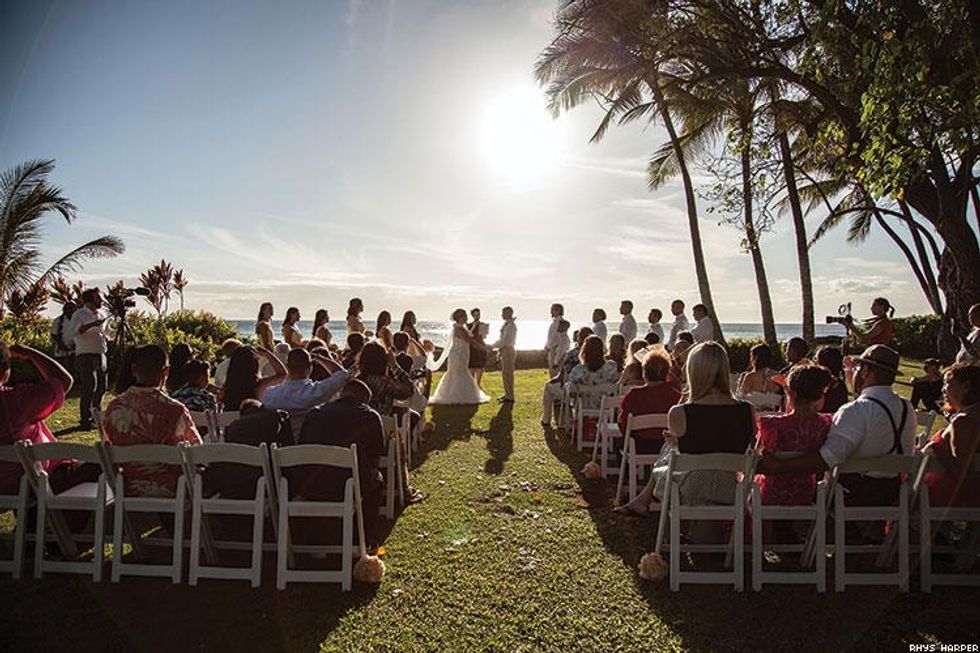
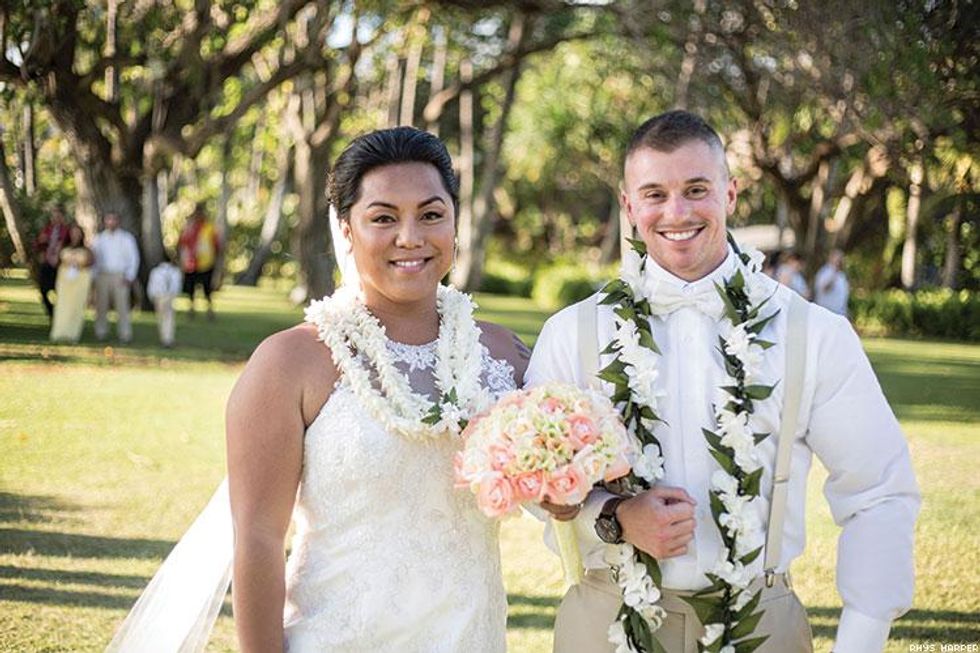
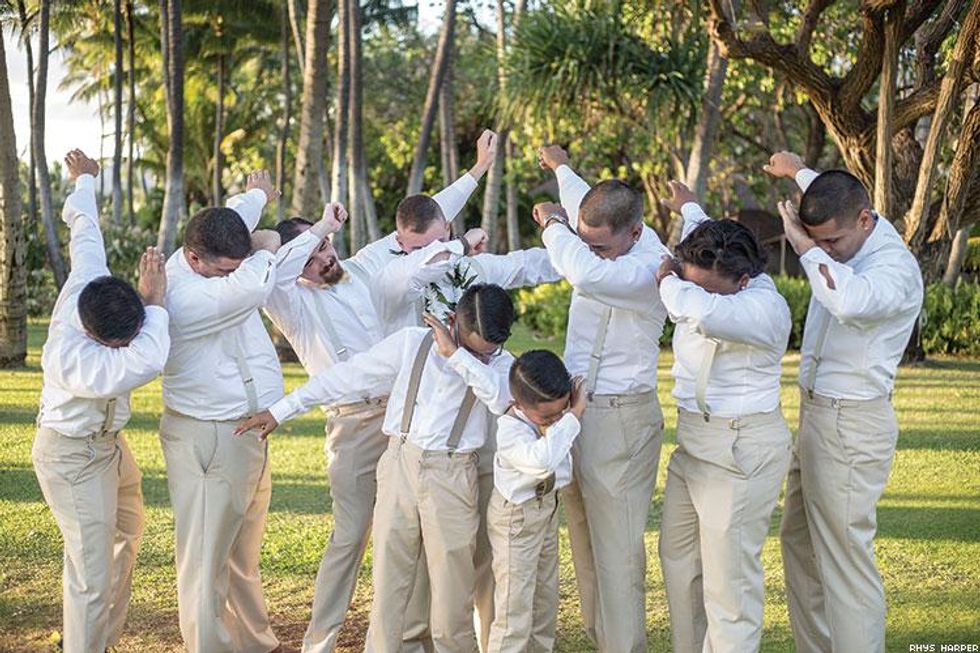
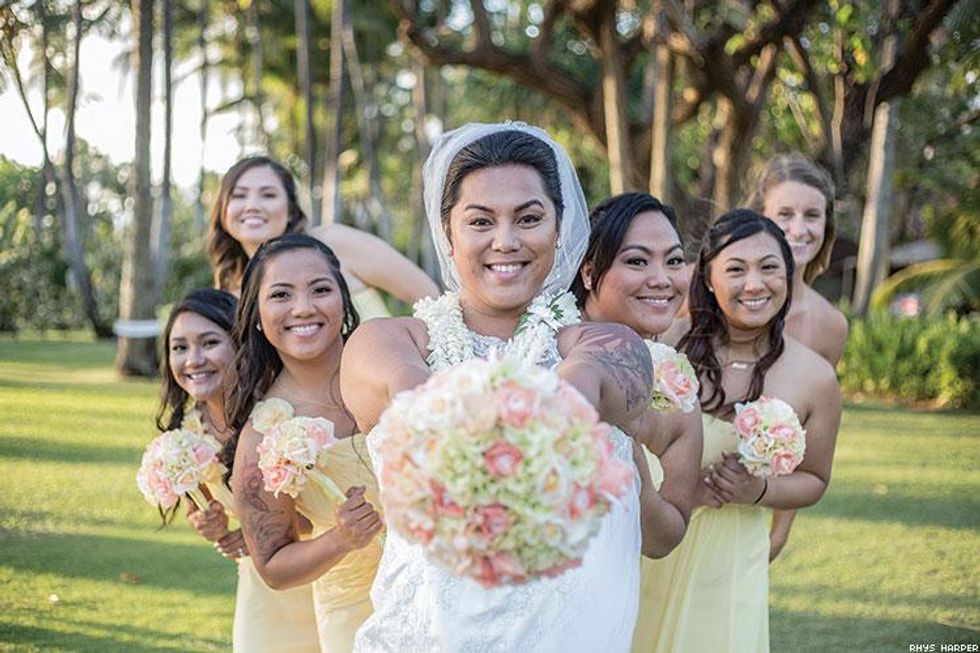
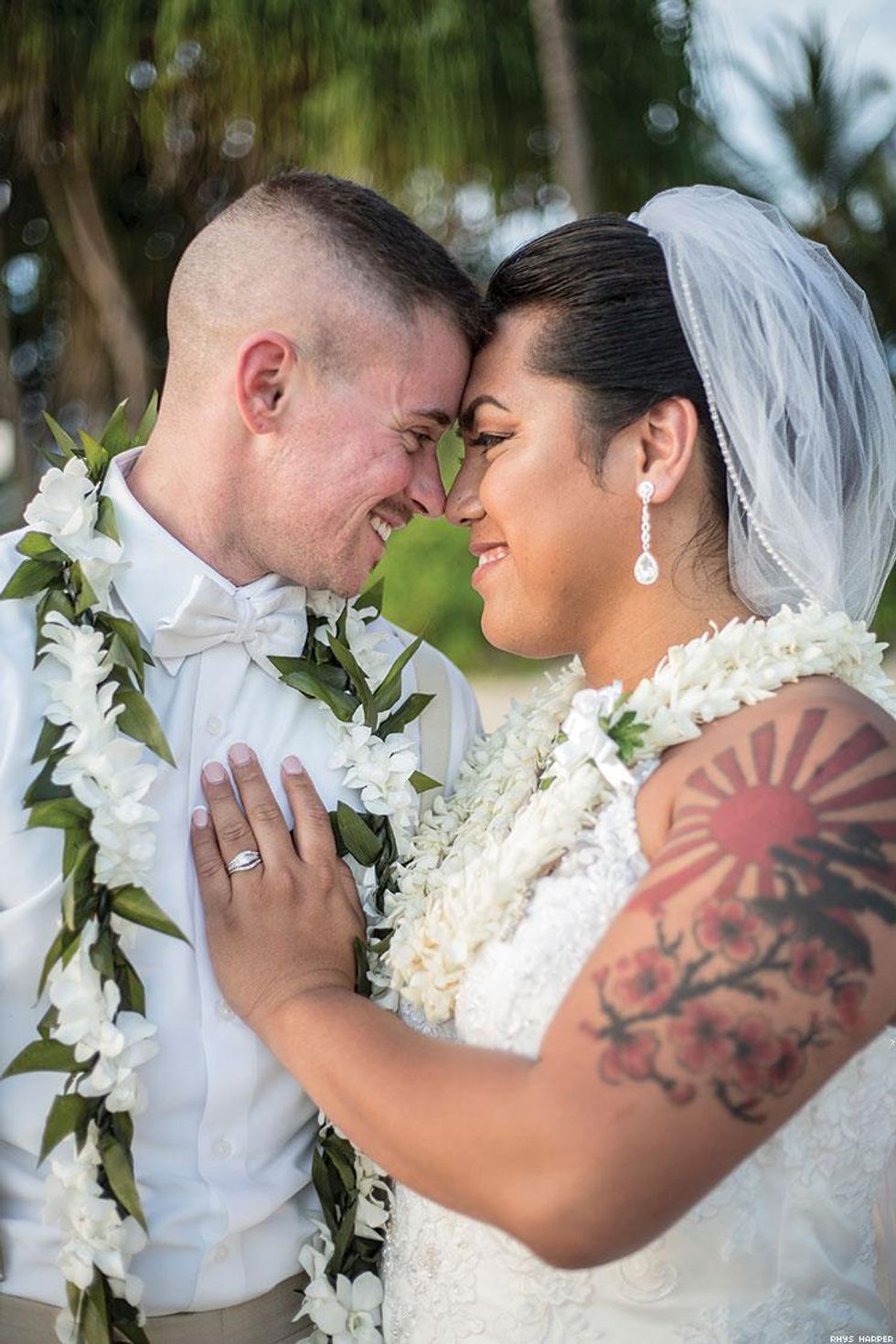
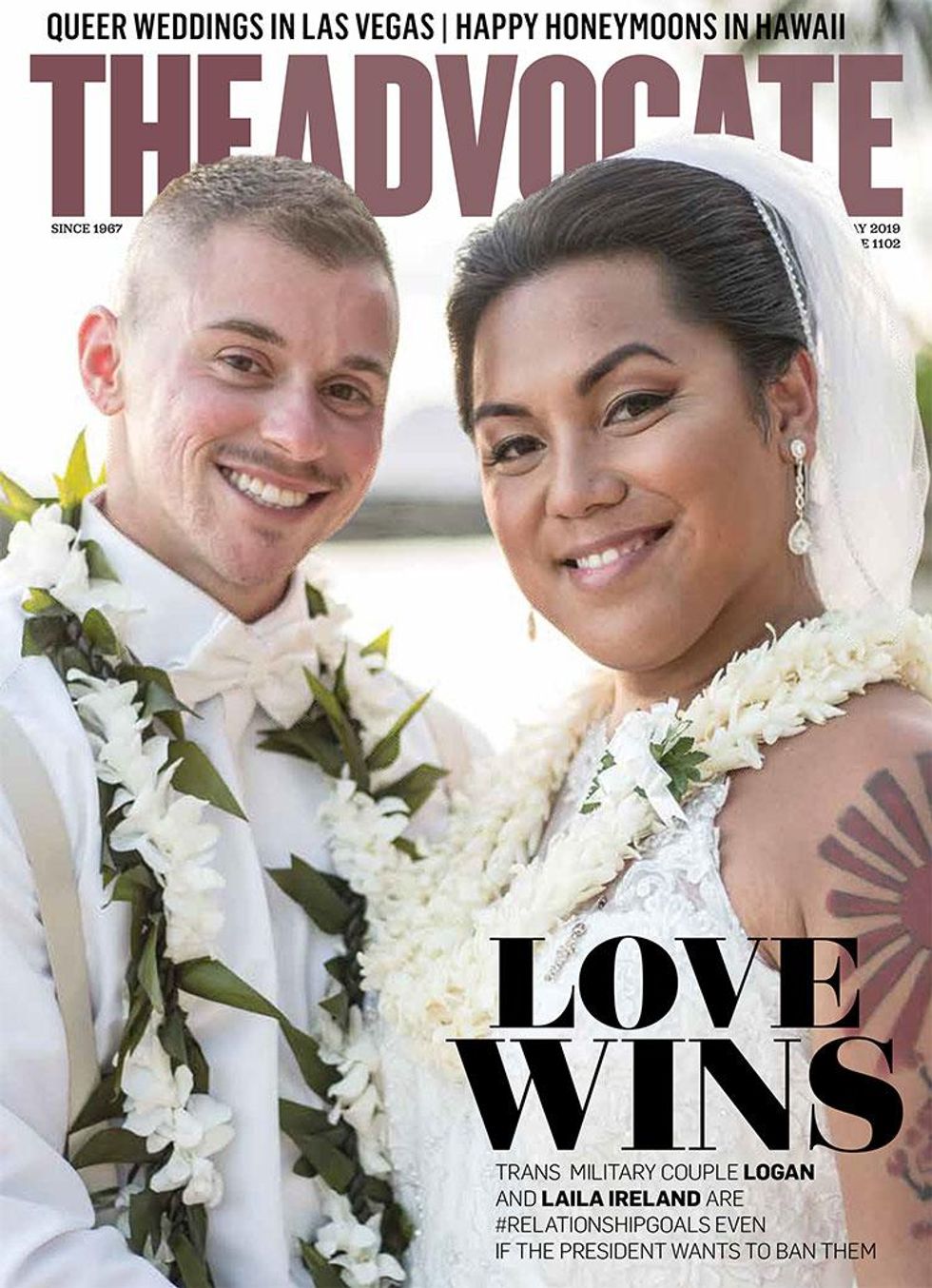



































































Charlie Kirk DID say stoning gay people was the 'perfect law' — and these other heinous quotes